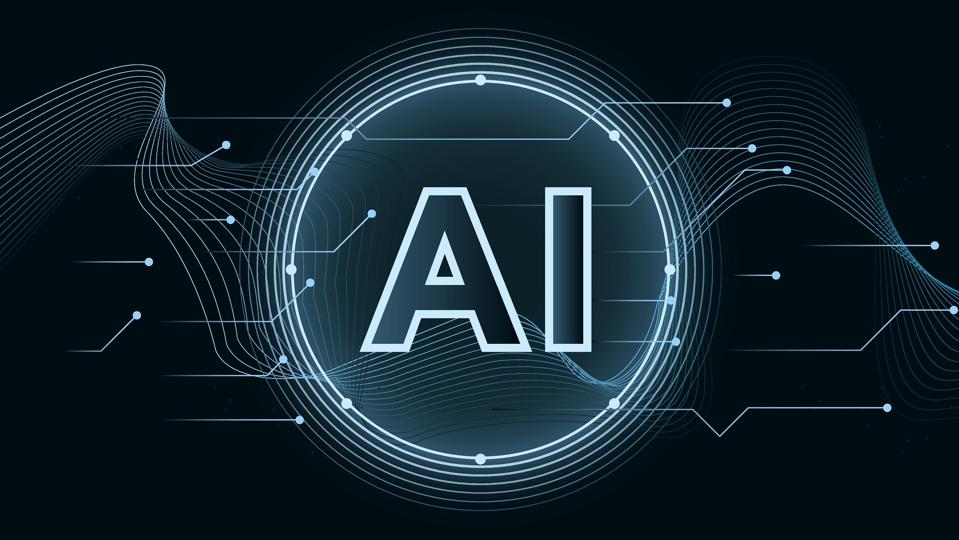Richard Whittle gets funding from the ESRC, Research England and was the recipient of a CAPE Fellowship.
Stuart Mills does not work for, seek advice from, own shares in or get funding from any company or organisation that would take advantage of this post, and has actually divulged no relevant associations beyond their academic appointment.

Partners

University of Salford and University of Leeds offer financing as establishing partners of The Conversation UK.
View all partners

Before January 27 2025, trademarketclassifieds.com it's reasonable to state that Chinese tech business DeepSeek was flying under the radar. And then it came dramatically into view.

Suddenly, everybody was speaking about it - not least the investors and executives at US tech firms like Nvidia, Microsoft and Google, which all saw their business values tumble thanks to the success of this AI start-up research study laboratory.
Founded by an effective Chinese hedge fund supervisor, the laboratory has actually taken a different approach to expert system. Among the major differences is expense.
The advancement expenses for Open AI's ChatGPT-4 were stated to be in excess of US$ 100 million (₤ 81 million). DeepSeek's R1 model - which is utilized to generate content, fix logic problems and develop computer system code - was reportedly used much less, less powerful computer system chips than the similarity GPT-4, leading to costs declared (however unproven) to be as low as US$ 6 million.
This has both financial and geopolitical results. China goes through US sanctions on importing the most innovative computer chips. But the fact that a Chinese start-up has actually been able to construct such a sophisticated model raises concerns about the efficiency of these sanctions, and whether Chinese innovators can work around them.
The timing of DeepSeek's new release on January 20, higgledy-piggledy.xyz as Donald Trump was being sworn in as president, signalled a difficulty to US dominance in AI. Trump reacted by describing the moment as a "wake-up call".
From a financial perspective, the most obvious result might be on customers. Unlike rivals such as OpenAI, which recently began charging US$ 200 per month for access to their premium models, DeepSeek's similar tools are presently totally free. They are likewise "open source", allowing anyone to poke around in the code and reconfigure things as they want.
Low expenses of advancement and efficient usage of hardware seem to have actually managed DeepSeek this expense benefit, and have currently required some Chinese rivals to reduce their prices. Consumers need to prepare for lower expenses from other AI services too.
Artificial investment
Longer term - which, in the AI market, can still be remarkably soon - the success of DeepSeek might have a big impact on AI financial investment.
This is since up until now, almost all of the huge AI companies - OpenAI, Meta, Google - have been struggling to commercialise their models and pay.
Previously, this was not always an issue. Companies like Twitter and Uber went years without making profits, prioritising a commanding market share (great deals of users) rather.
And business like OpenAI have actually been doing the very same. In exchange for continuous investment from hedge funds and other organisations, they promise to construct a lot more powerful models.
These designs, pipewiki.org the company pitch most likely goes, will massively improve productivity and after that profitability for companies, which will end up pleased to pay for AI items. In the mean time, all the tech business need to do is collect more information, buy more effective chips (and more of them), and establish their designs for longer.

But this costs a lot of cash.
Nvidia's Blackwell chip - the world's most powerful AI chip to date - expenses around US$ 40,000 per unit, and AI companies often require 10s of countless them. But already, AI business have not really struggled to attract the needed financial investment, even if the sums are substantial.
DeepSeek may alter all this.
By showing that innovations with existing (and historydb.date perhaps less advanced) hardware can achieve comparable efficiency, it has actually given a caution that tossing cash at AI is not guaranteed to settle.
For instance, prior to January 20, it may have been assumed that the most innovative AI models need massive data centres and other facilities. This suggested the similarity Google, Microsoft and OpenAI would face minimal competitors because of the high barriers (the large cost) to enter this market.

Money worries
But if those barriers to entry are much lower than everyone believes - as DeepSeek's success recommends - then lots of enormous AI investments all of a sudden look a lot riskier. Hence the abrupt impact on huge tech share costs.
Shares in chipmaker Nvidia fell by around 17% and ASML, which creates the devices required to make sophisticated chips, likewise saw its share cost fall. (While there has actually been a minor bounceback in Nvidia's stock rate, it appears to have settled listed below its previous highs, reflecting a new market reality.)

Nvidia and ASML are "pick-and-shovel" companies that make the tools needed to produce an item, instead of the product itself. (The term comes from the concept that in a goldrush, the only person guaranteed to make cash is the one selling the picks and shovels.)
The "shovels" they offer are chips and chip-making devices. The fall in their share rates originated from the sense that if DeepSeek's much less expensive method works, the billions of dollars of future sales that investors have priced into these business might not materialise.
For the similarity Microsoft, Google and Meta (OpenAI is not openly traded), the cost of building advanced AI may now have actually fallen, meaning these firms will have to invest less to stay competitive. That, for them, could be a good idea.
But there is now question regarding whether these business can effectively monetise their AI programmes.
US stocks make up a traditionally big percentage of global investment right now, and innovation business comprise a historically big percentage of the worth of the US stock market. Losses in this industry may require financiers to sell other investments to cover their losses in tech, resulting in a whole-market recession.
And it shouldn't have come as a surprise. In 2023, a dripped Google memo alerted that the AI market was exposed to outsider interruption. The memo argued that AI companies "had no moat" - no security - versus rival models. DeepSeek's success may be the evidence that this is real.







